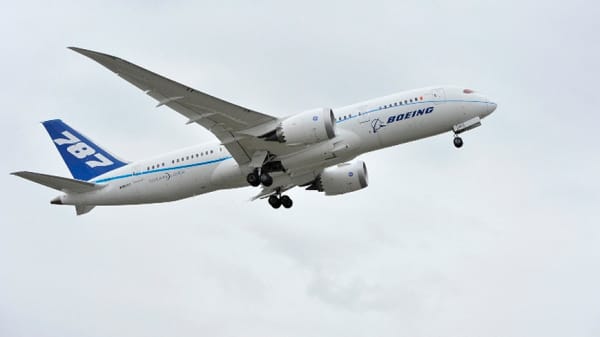While Ryanair CEO Michael O'Leary finalized an order for 175 Boeing 737-800 aircraft at the Paris Airshow - Boeing's largest ever firm order from a European airline – he remained disappointed that neither Boeing nor Airbus could offer him a few more seats on their single-aisle aircraft to allow for cheaper fares.
As Boeing CEO Ray Conner stressed the fuel efficiency of the Boeing 737 against the Airbus A320neo, O'Leary was adamant that this wasn't the issue at hand: it was about the seats. The Airbus A320neo allows 180 passengers in a single class setting; the Boeing 737-800 allows nine more: 189 seats.
Yet even this is not enough for Ryanair's real long-term ambitions. O'Leary told CNBC he would like six extra seats, something that Boeing and Airbus alike will find difficult.
"They have regulatory issues, licensing issues, emergency evacuation issues, there are also technical issues, which I'll confess I don't really understand," he said, explaining why Boeing could not offer him 195 seats and one less toilet on board. "But you know, it seems to me a very simple thing: take out a couple of toilets and stick in six extra seats; let's do it today. They have a lot of issues they are dealing with, the 787 and everything else. I think it's a challenge for Boeing, it's something we'd like to see longer term because it would mean cheaper fares for passengers."
(Read More: Boeing Fights Back With New Dreamliner Orders)
With smaller manufacturers aiming to make a dent into the small aircraft market, with the likes of the new Embraer E-Jets and Bombardier CSeries, O'Leary said these new players were not on his radar. "Waste of time," he said bluntly. "If it's not a 180-189 aircraft, we don't want to know."





